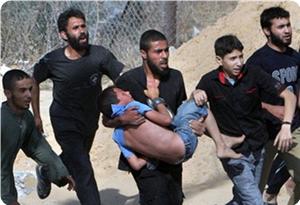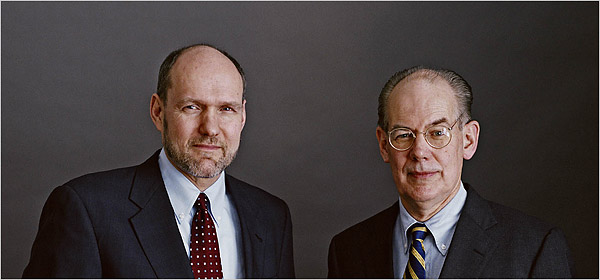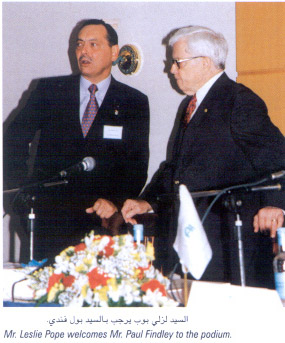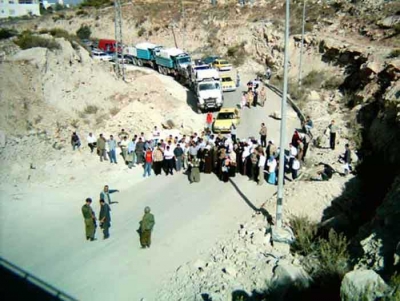|
Islam and Fascism
Let me first address the conflict terminology used in this propaganda campaign, that is the relationship between Islam and Fascism. Then, I'd like to mention some areas in which Muslim Americans have been suffering since September 11, 2001, and finally some historical facts to show who are the real terrorists in the Middle East, the Israelis or the Palestinians. 1. Islam and Fascism As defined in the Holy Qur'an, Islam is the religion of God and His guidance and mercy to humanity. Islam transcends nationalism, race, ethnicity, and socio-economic statuses. It does not differentiate between people on basis of their faith, skin color, national origin, language, or wealth. The closest to God and most rewarded by Him are those who watch Him in what they say and do. Islam teaches believers to treat each others as brothers and sisters in faith. Nobody should be persecuted for their different characteristics, particularly for their faith, national origin, skin color, language, wealth or lack there of. The following verses from the Holy Qura'an express the above meanings: Chapter 2, Verse 256; Chapter 3, Verse 19; Chapter 5, Verse 3; Chapter 9, Verse 33; Chapter 10, Verse 6; Chapter 49, Verse 13; Chapter 22, Verse 45; Chapter 10, Verse 13; Chapter 30, Verse 2. *** Fascism, however, is a European ideology that focuses on the glorification of a specific nation and its supremacy over other nations. Fascist Italy under Mussolini used this defunct ideology to mobilize Italians to invade other nations, like Libya, Ethiopia, and Somalia. Fascist Italy also met with Nazi Germany on the same premises of supremacy of the two states and the Arian race over other nations, nation states, and racial groups. *** What is fascism anyway: "Fascism, modern political ideology that seeks to regenerate the social, economic, and cultural life of a country by basing it on a heightened sense of national belonging or ethnic identity. Fascism rejects liberal ideas such as freedom and individual rights, and often presses for the destruction of elections, legislatures, and other elements of democracy. Despite the idealistic goals of fascism, attempts to build fascist societies have led to wars and persecutions that caused millions of deaths. As a result, fascism is strongly associated with right-wing fanaticism, racism, totalitarianism, and violence." Encyclopedia Encarta http://encarta.msn.com/encyclopedia_761568245/Fascism.html *** If we apply the above definition to the Israeli occupation state, we find it applies to many aspects of this state. Further, the definition applies to supporters of the Israeli occupation regime, described by Mearsheimer and Walt as the Israel Lobby in their tactics against opposition and descent. 1. The Israeli occupation regime is racist, in that it allows only Jews to immigrate to the state and get the Israeli citizenship. The native Muslim and Christian Arabs and non-Arabs are barred from immigration to Israel. 2. The Israeli occupation regime is expansionist and imperialist, as evidenced in its continuous wars of expansion, as will be mentioned below. 3. The Israeli occupation regime adopts Apartheid as a policy, in order to separate population groups on religious and racial bases., as evidenced by the network of roads and settlements, the access to which is limited to Israelis only, but not to the Palestinian people. Conclusion: While Islam is an international, humanist, compassionate religion, the Israeli ideology of Zionism is an exclusive, discriminatory, racist ideology working for the supremacy of the Israeli regime over other nations, particularly in the Middle East. The term fascism is most applicable in our times to the Israeli occupation government and those who support its policies.
Appendix
Fascism
Encyclopedia Encarta Article
Article Outline
Introduction;
Major
Elements; How
Fascist Movements Differ; Compared
to Other Radical Right-Wing Ideologies; The
Origins of Fascism; The
First Fascist Movement: Italy; Fascism
in Germany: National Socialism; Fascism
in Other Countries from 1919 to 1945 ; Fascism
after World War II; New
Fascist Strategies
Fascism, modern political ideology that seeks to regenerate the social, economic, and cultural life of a country by basing it on a heightened sense of national belonging or ethnic identity. Fascism rejects liberal ideas such as freedom and individual rights, and often presses for the destruction of elections, legislatures, and other elements of democracy. Despite the idealistic goals of fascism, attempts to build fascist societies have led to wars and persecutions that caused millions of deaths. As a result, fascism is strongly associated with right-wing fanaticism, racism, totalitarianism, and violence. The term fascism was first used by Italian dictator Benito Mussolini in 1919. The term comes from the Italian word fascio, which means “union” or “league.” It also refers to the ancient Roman symbol of power, the fasces, a bundle of sticks bound to an ax, which represented civic unity and the authority of Roman officials to punish wrongdoers. Fascist movements surfaced in most European countries and in some former European colonies in the early 20th century. Fascist political parties and movements capitalized on the intense patriotism that emerged as a response to widespread social and political uncertainty after World War I (1914-1918) and the Russian Revolution of 1917. With the important exceptions of Italy and Germany, however, fascist movements failed in their attempts to seize political power. In Italy and Germany after World War I, fascists managed to win control of the state and attempted to dominate all of Europe, resulting in millions of deaths in the Holocaust and World War II (1939-1945). Because fascism had a decisive impact on European history from the end of World War I until the end of the World War II, the period from 1918 to 1945 is sometimes called the fascist era. Fascism was widely discredited after Italy and Germany lost World War II, but persists today in new forms. Some scholars view fascism in narrow terms, and some even insist that the ideology was limited to Italy under Mussolini. When the term is capitalized as Fascism, it refers to the Italian movement. But other writers define fascism more broadly to include many movements, from Italian Fascism to contemporary neo-Nazi movements in the United States. This article relies on a very broad definition of fascism, and includes most movements that aim for total social renewal based on the national community while also pushing for a rejection of liberal democratic institutions. Encyclopedia Encarta http://encarta.msn.com/encyclopedia_761568245/Fascism.html
|
|
















